#baroness orczy
Explore tagged Tumblr posts
Text
It has been a personal quest of mine to find that ‘common wayside flower’ for about as long as I have lived (since I first read the ‘Scarlet Pimpernel’- for who has truly lived when they have not) and it has finally happened. I sought the ruddy thing here, I sought the ruddy thing there, was it in heaven? Was it in hell?
No, it was growing in a crack beside the war memorial by the local pleasure garden:

#victory is mine!#YEARS I have been looking for that ruddy thing#the scarlet pimpernel#baroness orczy
261 notes
·
View notes
Text
I'm a history nerd, don't get me wrong, but I always found it funny when people get like really really angry about period dramas being "historically inaccurate" because people from back then didn't gave shit about that. Do you know how inaccurate Shakespear's plays about War of the Roses are? For context War of the Roses happened from 1455 to 1487, Henry VI, Part 1 is believed to have been written in 1591. Best example of Willie not giving a shit is the fact according to him Richard III killed a guy in battle that really happend when he was 3.
And don't even get me started about the Scarlet Pimpernel (1905). You think Orczy cared about being historically accurate when writing abour French Revolution? No, she wanted to write about her Batman prototype. So stop complaining, it makes you look stupid
#shakespeare#william shakespeare#my lady jane#bridgerton#romeo and juliet#scarlet pimpernel#baroness orczy#baroness emma orczy#emma orczy#richard iii#the great#reign
87 notes
·
View notes
Text
When The Phone Rings as The Scarlet Pimpernel Quotes P4







P1 / P2 / P3 / P4 / P5 / P6 / P7
#the scarlet pimpernel#tsp#baroness orczy#when the phone rings#wtpr#my wife is my weakness#kdrama#korean drama#literature parallels with procrastaenating
32 notes
·
View notes
Text
French and English lit are my reason to live
#jekyll and hyde#the strange case of dr jekyll and mr hyde#rls#robert louis stevenson#treasure island#victor hugo#les mis#les miserables#notre dame de paris#tsp#the scarlet pimpernel#post#baroness orczy#frankenstein#mary shelley#oscar wilde#the picture of dorian gray#gaston leroux#poto#the phantom of the opera#arthur conan doyle#sherlock holmes#jane eyre#charlotte bronte#bram stoker#dracula#although it's more of an irish lit...#gothic literature#goth lit#classic literature
20 notes
·
View notes
Text
A Scarlet Pimpernel conundrum that lives rent free in my brain:
According to Sally Dugan, Orczy continued to write Pimpernel books mostly because her publishers kept asking for them and they were paying her bills (I call it Conan Doyle syndrome)
Dugan says that Orczy couldn't keep using Marguerite as the protagonist because convention demanded that she stay at home as a good little wife (boo!)
In her search for other potential POV characters, Orczy usually used one of the innocents that Percy is going to rescue, but matching them all in frequency is, unusually, recurring villain Chauvelin
(Quick aside to mention that the members of the League are usually out as POV characters because they know too much, note that when they are given the POV, they tend to be chafing against Percy refusing to share the details of his current plan with them. Percy is almost entirely out as a POV character because he's a trickster type hero and having access to his thoughts would kill the tension. That's also the reason why having the villain as a main POV character works; the question is never IF Percy will win, but HOW, so we must know all the difficulties in his way but not how he intends to overcome them.)
Once Chauvelin becomes a POV character he is immediately written much more sympathetically, from his very first scene in Elusive where he is shown to be vulnerable (threatened by Robespierre), cool (doesn't care about the threat) and admirable (his motivation is contrasted positively with Robespierre's). From this book onward, he has stopped taking snuff (trauma lol), stopped cackling evilly, and the hand-rubbing has gone from a diabolical gesture to a sign of his excessive nerves. He is shown to be increasingly traumatized by Percy's almost superhuman luck and skill, he is constantly exhausted and almost hysterical with nerve-strain, and he is continually contrasted as a true believer in the cause against his power-hungry, selfish, stupid colleagues. In Elusive especially he is heavily paralleling Marguerite. What I'm asking is, did Orczy miss her female protagonist so much she started writing Chauvelin the same way???
#The Scarlet Pimpernel#Baroness Orczy#On the one hand I should not be attempting to write meta having read only some of the books in the series#On the other hand if I have to sit on these questions alone much longer I will explode#Unfortunately Sally Dugan does not have all the answers though her book is very worth reading#Armand Chauvelin#Don't get me wrong he's still an evil little rat man - just a more sympathetic evil little rat man#Btw feel free to chime in I really want to know what thoughts you guys have
27 notes
·
View notes
Text
Yaaaay It's a Pimpernel post again, I made 3 playlists a while ago and just wanted to share it with my fellow SP fans out there
Warning: yes, they may have songs from the musical but the inspo behind the lists is from the og books, mostly from the first one so there is no love triangle or anything that is not in the canon
I focused on the two lovebirds (and Percy as an individual) and the most important thing: the lyrics - so the music itself is not always in relation with the aesthetic of the book.
The sad list (as I like to call it): This is the pre-discovery era, it's the longing, it's the "where did I go wrong", it's the "I was a fool to trust you" it's the "I still love you though and it's killing me" Fun fact: the first piece is the aria that Margot listenes to during the talk with Chauvelin in the opera box.
The happy-end list: This is the ultimate second chance romance at it's best, it's the "things we didn't say before", it's the "can we start again?", it's the "I was a fool but now I'm here"
The Percy character list: I'm a huge classical music fan so this list is a combination of what I feel Percy sounds like in terms of classical pieces and the usual lyrics-heavy songs
Enjoy, aand I'm also curious - do you have a song or piece that has no connection originally to the SP, but reminds you of it?
Love u💋
#the scarlet pimpernel#scarlet pimpernel#baroness orczy#sir percy blakeney#spotify#playlist#second chance romance#marguerite blakeney#marguerite st just#classical music#Spotify
14 notes
·
View notes
Text

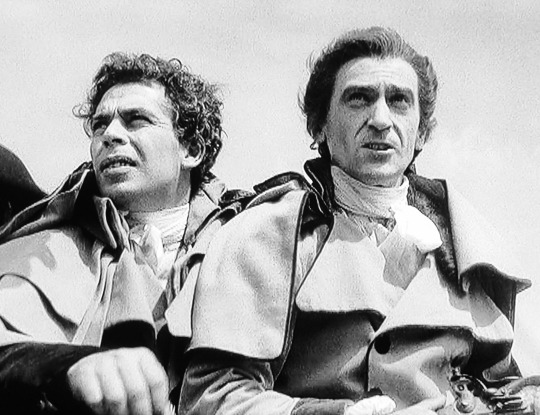
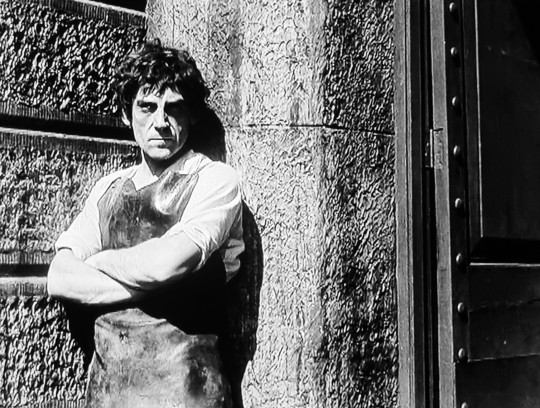

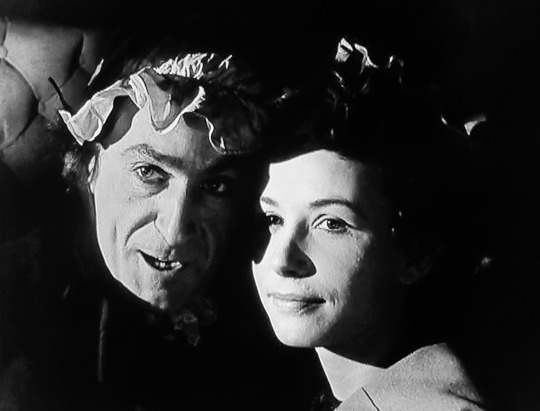
A final selection of Pat Troughton's varied looks in The Adventures of the Scarlet Pimpernel (ITP, 1955 - 1956)
#fave spotting#patrick troughton#the adventures of the scarlet pimpernel#doctor who#classic doctor who#two#itp#itc#1955#1956#classic tv#baroness orczy#character actors#anthony newlands#marius goring#including a little casual crossdressing in the final image#it's for an escape.. honest...#this was such a fun series in the end#also one that just asks for queer readings#i mean the Pimpernel's sworn bachelordom‚ as well as his intensely close friendships with Troughton and Newlands#plus the ep where Goring and Newlands go to France and book into one room and share a bed...
48 notes
·
View notes
Text
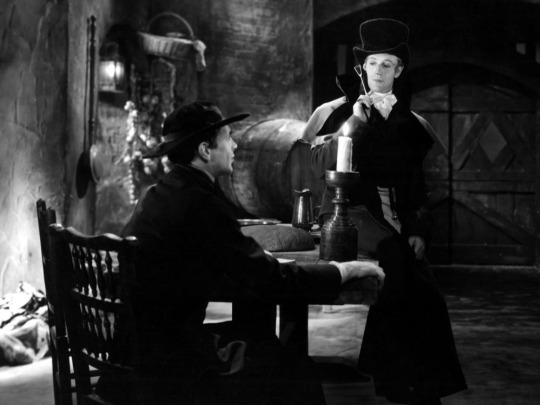
Leslie Howard as Sir Percy Blakeney, and Raymond Massey (1896–1983) as Chauvelin
Film: The Scarlet Pimpernel (1934)
Based on a novel by Baroness Emma Orczy (1905)
12 notes
·
View notes
Text
something i've been thinking a lot about recently... engaging with the scarlet pimpernel as a person of color makes my head explode sometimes. there's always a bit of awkwardness and discomfort as a woc and classics lover when i have to engage with those texts, but scarlet pimpernel specifically gives me the biggest whiplash, especially when i also look at adaptations. yes, i'm talking about you wildhorn musical.
6 notes
·
View notes
Text
Good Omens/The Scarlet Pimpernel parallels (and what they might mean for s3)
We seek him here, we seek him there Those Frenchies seek him everywhere Is he in Heaven? Is he in Hell? That demmed elusive Pimpernel!
Some time back, I saw a question about Good Omens/Scarlet Pimpernel parallels in the French Revolution scene in s1e3 and whether they were intentional -- I can't find the post itself because tumblr's search function is stupidly broken (I'm starting to think I might have hallucinated it...), but I clearly recall that the answer was, "If anyone in Good Omens parallels Sir Percy Blakeney, it's Aziraphale." (or words to that effect)
This got me thinking -- and also very curious about the original novel (my only prior encounter with the story having been a production of the musical at the Minack in 2007), and once I got to read it for myself, the ideas they were a-flowin' ^_^ I have Thoughts about how all this might play into Season 3...
Spoilers for The Scarlet Pimpernel below the cut -- the novel might be over 100 years old, but that doesn't mean I can assume that everyone's going to be familiar with it (read it for free at Project Gutenberg here, and become one of today's lucky 10,000!). Also be aware of some minor spoilers for the Sandman arc 'The Kindly Ones'.
To start with, if we take at face value the idea that Aziraphale parallels Sir Percy Blakeney (who, like Azzy, conceals a deep well of steely badassery and daring ingenuity under outward foppishness -- though with Sir Percy it's much more of a studied and deliberate facade), then it seems fairly reasonable to assume that Crowley roughly parallels Marguerite Blakeney (nee St-Just) and the Metatrash (may he tread on Lego and d4s for all eternity) parallels that accredited agent of the Revolutionary government, Monsieur Shovellin' Chauvelin.
As a recap, the basic plot of The Scarlet Pimpernel runs thus:
The French Revolution is a-raging and many sacres aristos are having fatal meetings with Madame Guillotine, but many more are being rescued in daring and inexplicable ways by a mysterious individual whose calling-card is the image of a small red flower -- a scarlet pimpernel; meanwhile, to the general bewilderment of High Society, Marguerite St-Just (widely considered the most intelligent woman in Europe) has married the notoriously brainless fop Sir Percy Blakeney.
There is a certain degree of coldness and emotional estrangement between them, because Marguerite was tangentially involved in getting the Marquis de Saint-Cyr and his family guillotined (though the circumstances are very complex and she didn't actually mean for Saint-Cyr to die). Percy and Marguerite do still love each other, but ferocious stiff-necked pride on both sides prevents them from actually talking things out.
Chaubertin Chauvelin, suspecting that his bête noir, the Scarlet Pimpernel, is part of English high society, blackmails Marguerite into finding information on that mysterious Pimpernel for him by threatening her beloved brother's safety.
Marguerite caves and does so, but instantly regrets it. She regrets it even harder when she finally connects the dots that her foppish, foolish husband is the daring and ingenious Pimpernel.
Sir Percy having personally gone to France to rescue the Comte de Tournay, Marguerite makes a mad dash to warn her beloved husband that Shoehorn Chauvelin has rumbled him.
Without spoiling the entire ending of the novel: there is rescuing, communication, relinquishment of pride, professions of love, Chamberpot Chauvelin being so distracted by Marguerite at a crucial moment that Sir Percy is able to pull his master-stroke, with Chauvelin being defeated and (though it happens off-page) humiliated!
Looking at this summary, it seems to map eerily well onto the Final Fifteen, with the pride and blackmail and mutually less-than-perfect communication! That said, I'm personally getting the vibe that Aziraphale and Crowley are trading roles there somewhat, with Azzy being more Marguerite and Crowley being more of a Sir Percy-type. Also, Crowley is already well aware that his angel is very much the 'daring and ingenious badass' type when it comes to it :D
But what does it all mean for S3? Going from what I've said so far, my best guess is this: Aziraphale (Sir Percy) is carrying out his daring schemes of subversion against Heaven (France) and the Second Coming (the Revolution), while Crowley (Marguerite) is (at least initially) very down-in-the-dumps about their estrangement and the Metatron (Chauvelin) is keeping up pressure on Azzy to be meek and complaint by threatening Crowley. Crowley (once he gets past the initial gloom) starts making plans of his own, in close temporal proximity to his joining the dots about Aziraphale's plans. Aziraphale likewise manages to put two and two together regarding what his wily ol' serpent is up to, but one of them accidentally tips off the Metatron and co., realises it and desperately tries to warn/rescue the other (trading off or simultaneously filling both Sir Percy and Marguerite roles, per previous paragraph). This very desperation acts as a spanner in the works for Metatron and his plans for the Second Coming, drawing his focus to one of the Ineffable Husbands at a critical moment and allowing the other to complete their world/true-love-saving plans. The threat conclusively defeated, the Ineffables FINALLY FRICKIN' TALK THINGS OUT, have the proper wedding that they deserve and retire to that South Downs cottage to live happily ever after <3
Bonus points if another key factor in the Metatron's downfall is his underlings, like Chauvelin's, having been terrified into obeying orders to the letter rather than thinking independently or showing initiative! Given what we've seen of Heaven and its authoritarian abusiveness so far, this is a very distinct possibility...
One incident in Scarlet Pimpernel that is sadly unlikely to have a direct parallel in S3 is the glorious scene where Sir Percy exploits Chauvelin's (by this point well-established) snuff habit to pull off what is quite possibly the most badass pepper-sneeze prank ever put to paper. It is very possible, though, that something like it will happen as payoff for the Nazi Zombie Flesh-Eaters minisode establishing that Aziraphale can pull off sleight-of-hand PERFECTLY when it really counts :D
Thank you for reading this far! At this point, I'd like to take a wild left turn and have a little jaunt into increasingly wild extrapolation/rambling, starting with the subject of floriography, or the language of flowers. This was a craze that exploded in popularity in England during the 19th Century, assigning all sorts of meanings to all sorts of plants. The real-life pimpernel flower was assigned the meaning of 'change' or 'rendezvous/appointment/assignation' -- very appropriate for the Ineffable Husbands, since so much of their relationship has been conducted through clandestine appointments and they've both been through much change (both internal and external), with yet more change in their futures. I would say it'd be cool to see actual pimpernel flowers among the floral arrangements for the Ineffable Wedding, but I just checked the Wikipedia article and it turns out that pimpernels are interestingly poisonous... I doubt Baroness Orczy thought about that when picking floral symbolism XD
The pimpernel flower being associated with 'change' also reminds me of something about Sandman, that the plot can be summed up as 'The King of Dreams must change or die, and he makes his choice.' At the climax of the penultimate arc of the comic, 'The Kindly Ones', Morpheus (who's been the central character of the whole comic thus far) finds himself unable to change to the degree he needs to, so he chooses to die so that another aspect of Dream of the Endless can come forth. I get the feeling that Good Omens might be in some way exploring the other branch of that choice, seeing what it might mean to opt for change rather than death. Or maybe the same 'death over change' branch as well, since it's so clear that the toxic messes of Heaven and Hell and the whole fucked-up system are too deeply entrenched for anything else?
Of course, none of this excludes or is incompatible with the Jane Austen parallels (particularly with Persuasion, as documented by other meta writers) that came up in s2 -- though to be honest, the very fact that they did appear in s2 means they're more likely to appear in s3, or at least more likely to be obvious/overt. That said, none of us can know what's in store, so we must perforce follow the Eleventh Commandment -- Wait And See!
It kinda feels like we're in the position of Job here (keep the faith and get back double what we lost)...
#good omens#good omens meta#speculation#fan theory#fan thoughts#the scarlet pimpernel#baroness orczy#parallels#aziraphale#crowley#ineffable husbands#the fucking metatron#fuck the metatron#sideways with a cactus
10 notes
·
View notes
Text
Seeking "The Scarlet Pimpernel"
“They seek him here, they seek him there/ Those Frenchies seek him everywhere/ Is he in heaven or is he in hell? That damned elusive Pimpernel.” Baroness Orczy (Emma Magdalena Rozália Mária Jozefa Borbála Orczy de Orci, 1865-1947) was born of a September 23. The Baroness is of course best known for her most successful literary creation The Scarlet Pimpernel, the principal character in a series…
#adaptations#Anthony Edwards#Baroness Orczy#book#dandy#David Niven#French Revolution#Leslie Howard#Movies#Television#The Scarlet Pimpernel
2 notes
·
View notes
Note
Who’s your favourite fictional character?
Thank you for asking, love!!
Hmm... let's see. There are a bunch that just won me over to the story.
For more modern literature, I'd say Scarlett Dragna from Caraval! While the series or the first book were far from perfect, I have to say I've almost never really related to a female character as much as I have with Scarlett.
In The Queen's Thief, I adored Sophos. (my oc is nothing like him, though sksksks) I devoured A Conspiracy of Kings! (close second is Pheris.)
In SGE, I of course love the chaotic fratricidal twins and Agatha and Sophie. (And Midas. Okay, Midas is just.. HE SHOULDN'T HAVE DIED.)
For "older" literature, I would say Passpartout from Around the World in 80 Days! He's just so funny and an amazing friend. He kept me engaged in the story, and I wish I had a friend like that.
Samson from The Bronze Bow. I hated how he died. I was actually sad to my core. He deserved better, and it broke my heart at daniel's reaction..
And, of course, Sir Percy and Marguerite Blakeney from The Scarlet Pimpernel! I love the way they both develop throughout the story, especially Marguerite, and Percy never fails to surprise.
#mara posts#ask answered#caraval#stephanie garber#scarlett dragna#around the world in 80 days#jules verne#passpartout#the scarlet pimpernel book#the scarlet pimpernel#lady marguerite blakeney#sir percy blakeney#baroness orczy#the bronze bow#samson#sophos#the queen's thief#megan whalen turner
7 notes
·
View notes
Text
When The Phone Rings as The Scarlet Pimpernel Quotes P3









P1 / P2 / P3 / P4 / P5 / P6 / P7
#the scarlet pimpernel#baroness orczy#when the phone rings#wtpr#my wife is my weakness#kdrama#korean drama#literature parallels with procrastaenating
22 notes
·
View notes
Text

Thought I would make use of my copy of Sally Dugan's study of The Scarlet Pimpernel (2012) and throw out some possible reasons why Marguerite was eclipsed by Sir Percy as the hero of the Scarlet Pimpernel sequels and film adaptations.
Public response to the play and the first novel: Marguerite was clearly the star of the story for Orczy, whether the character was an author insert or a 'fantasy representation'. In the first edition of the novel, the Baroness gave thanks to actress Julia Neilson , 'whose genius created the heroine of my story on stage'. A later edition credited both Neilson and her husband Fred Terry, who owned the rights to the play. Did Terry's performance as Sir Percy make Orczy realise that there was more fictional mileage in the eponymous Pimpernel?
Nationalism: Orczy identified with Marguerite, but Sir Percy is the quintessential English hero. Did the author want to prove her own loyalty to her husband's country by promoting her strong, brave and noble national hero over his rather more complex French wife? Dugan adds that 'this was compounded by pressures - particularly strong during wartime - to identify Englishness with masculinity.' Marguerite is demoted from an active and intelligent political thinker, who unwittingly betrays her new husband and country in favour of her brother and former Parisian associates, to a submissive wife and 'angel in the house' in the few sequels where she appears at all. She is a member of her husband's League but her role is reduced to fretting at home, either at Richmond or Dover, or accompanying Percy to France only to nursemaid the women and children he rescues. She has a stronger presence in Eldorado, which the 1982 adaptation was quick to utilise, but the loss of Marguerite's drive and independence in the first novel is a poor compromise for her reunion and happy ever after with Percy.
Was Orczy forced to favour Percy over Marguerite, to appease her publishers and satisfy her readers? Did she resent or accept the change? I would have loved to read about Marguerite taking a more active role in the League, instead of sitting at home with dark circles under her eyes or falling for Chauvelin's tricks again and again, and I can't imagine that the author who created such a vibrant but impulsive woman in The Scarlet Pimpernel just shrugged her shoulders and gave in, however much she also loved 'six foot odd of gorgeousness'!
(The illustration is 100% not mine, possibly by Julia Braid)
47 notes
·
View notes
Text
Can't stop thinking about Sir Percy continuing his Scarlet Pimpernel activities during the Napoleonic war. He's only 30 by the end of canon, and Napoleon comes to power 5 years later. The League could absolutely be running all kinds of guerilla operations in France or on the various fronts.
Imagine Napoleon learning to hate the little doggerel rhyme as much as the previous masters of France.
"They seek him-? Heaven or-? The nerve of this-! Who is this English devil?"
"Oh it's him, yeah we all hate him. Good luck, Monsieur First Consul, enjoy the gray hairs."
Not to mention that this leaves disgraced Chauvelin in a sudden position of power, being one of the few people who knows who the Scarlet Pimpernel is, and depending on whether you take Triumph or Hits Back as the final book in the series, he would either return to the hunt for his elusive nemesis, or himself become the hunted as he desperately tries to protect Percy's secret.
17 notes
·
View notes
Text
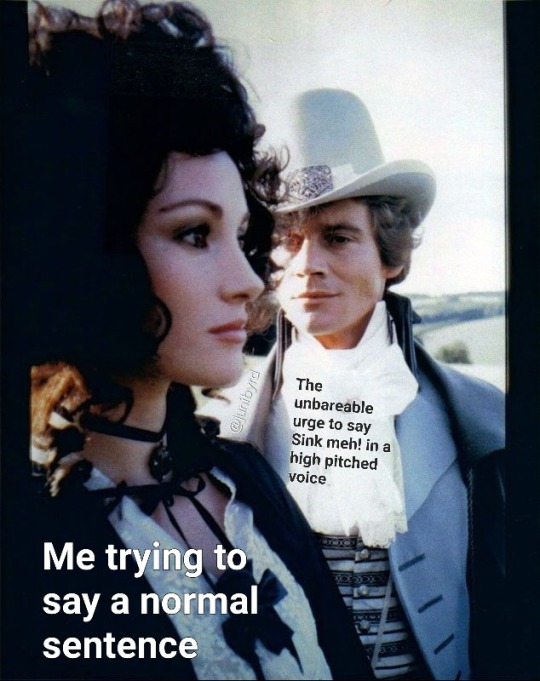






Sink me!
I found soooo many good memes on this lovely platform, that I've decided to contribute with my own! The last two is a pair, I came across this library tweet and I immediately thought about our Percy so I had to make that new version! (Also to me Percy gives off such golden retriever energy!)
The memes are also from the books so there is a tiny spoiler I guess in those😅 Honestly read them books!!! The first 5 is sooo good, there are also some really great things in other parts, jut read it! Btw I LOVE the fact that the audience at the time demanded all these new adventures and the Baroness was like listening!!! and serving!!! and gave us almost 15 books, basically fanfics about her own characters💅🏻
Also shoutout to the MUSICAL, (still pisses me off how forgotten it is!) Douglas Sills as Percy is pure perfection, the soundtrack and the LYRICS are just out of this world soo why are u still reading this and why aren't you violently typing it in Spotify or YouTube or Idon'tknowit'southerepeoplesodoyourselfafavorandgiveitalisten! Ok, Love u💋
#scarlet pimpernel#percy blakeney#meme#baroness orczy#we don't thank u enough for that#but hey it's never too late so thx Queen!#ian mckellen#anthony andrews#jane seymour#douglas sills#the scarlet pimpernel musical#the scarlet pimpernel#meme by me
51 notes
·
View notes